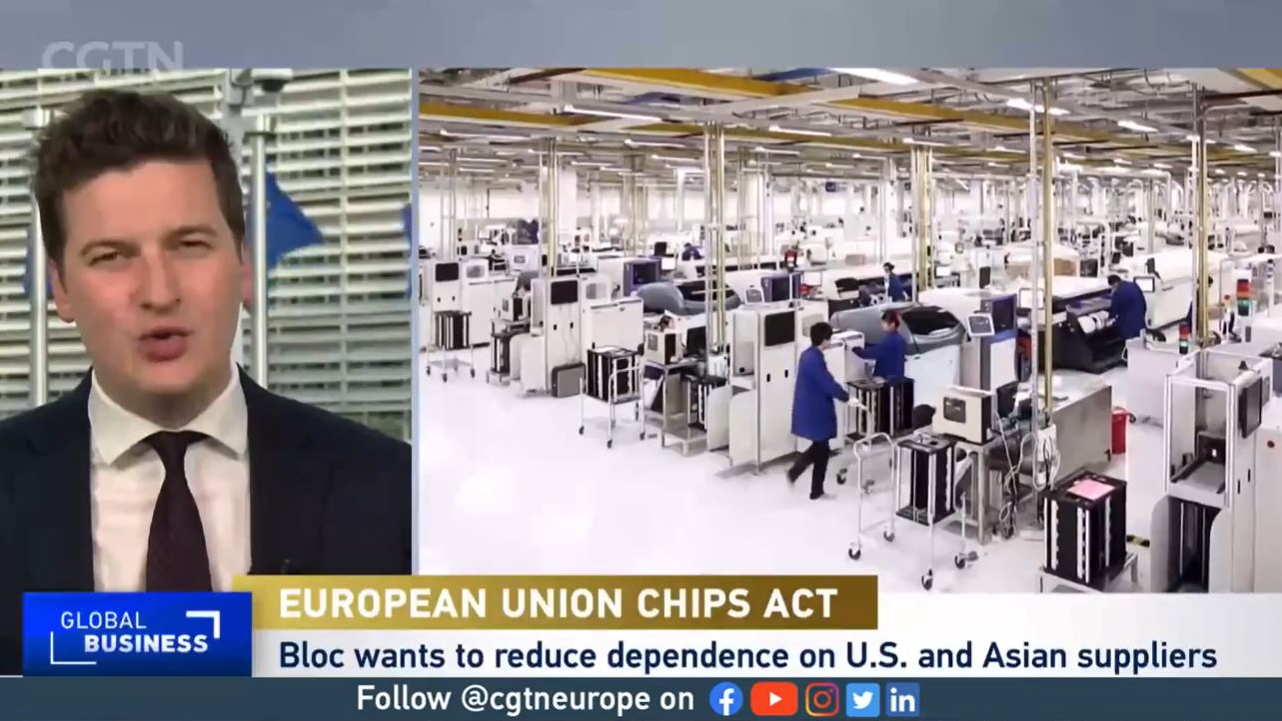03:35

The European Union has taken a first and vital step towards turbocharging its semiconductor industry in the face of intensifying global competition.
The European Council, Parliament and Commission reached a preliminary political agreement early on Tuesday which paves the way for a full sign-off from the EU's 27 member states.
Representatives from the three institutions met in Strasbourg on the second day of the European Parliament's plenary session.
The plan, proposed by the Commission in February, will cost an estimated $47 billion and aims to boost European production with a target of reaching 20 percent of global production in the next 10 years.
READ MORE
'Best chance' of finding alien life on Jupiter and Saturn
Türkiye prepares for momentous elections
Climate changes forces Loggerhead turtles to migrate
Ebba Busch, Swedish Minister for Energy, Business and Industry and Deputy Prime Minister, says the deal represents a big opportunity for the bloc to accelerate its green and digital transition.
"This agreement is of utmost importance for the green and digital transition while securing the EU's resilience in turbulent times," she said. "The new rules represent a real revolution for Europe in the key sector of semiconductors.
"A swift implementation of today's agreement will transform our dependency into market leadership, our vulnerability into sovereignty, our expenditure into investment. The chips act puts Europe in the first line of cutting-edge technologies which are essential for our green and digital transitions."
A $400 million gap in the funding which delayed the policy being signed off has now been resolved by the Commission, paving the way for the proposal to become law.
An agreement has also been reached on expanding the scope of the act - it will not just apply to cutting edge technology, but will now also cover the whole value chain, including older chips and research and design facilities.

The EU has agreed a plan to boost domestic semiconductor production in the face of intensifying global competition./ Yves Herman/Reuters
The EU has agreed a plan to boost domestic semiconductor production in the face of intensifying global competition./ Yves Herman/Reuters
Member states pointed out that Europe's technology companies are already competitive globally and would benefit from a boost in R&D funds to scale up operations, while including the entire value chain will ensure companies and smaller markets are not left out.
Despite this preliminary agreement, the plan will still need to be approved by all 27 member states. This means 27 different perspectives on a policy that is extremely central to the running of modern European economies. Relative to this, the U.S. passed its equivalent Chips and Science act nearly a year ago, and China has also been ramping up its capacity in the sector.
Semiconductors play a vital role in computer technology across the board and Europe is eager to secure a greater domestic supply - this policy is part of a broader European policy shift which includes new legislation boosting green technology production and securing the supply of raw materials.
While European decision making can be slower than its competitors, rising competition from China and the U.S., officials in Brussels are clear that Europe cannot afford to be left behind.
Subscribe to Storyboard: A weekly newsletter bringing you the best of CGTN every Friday